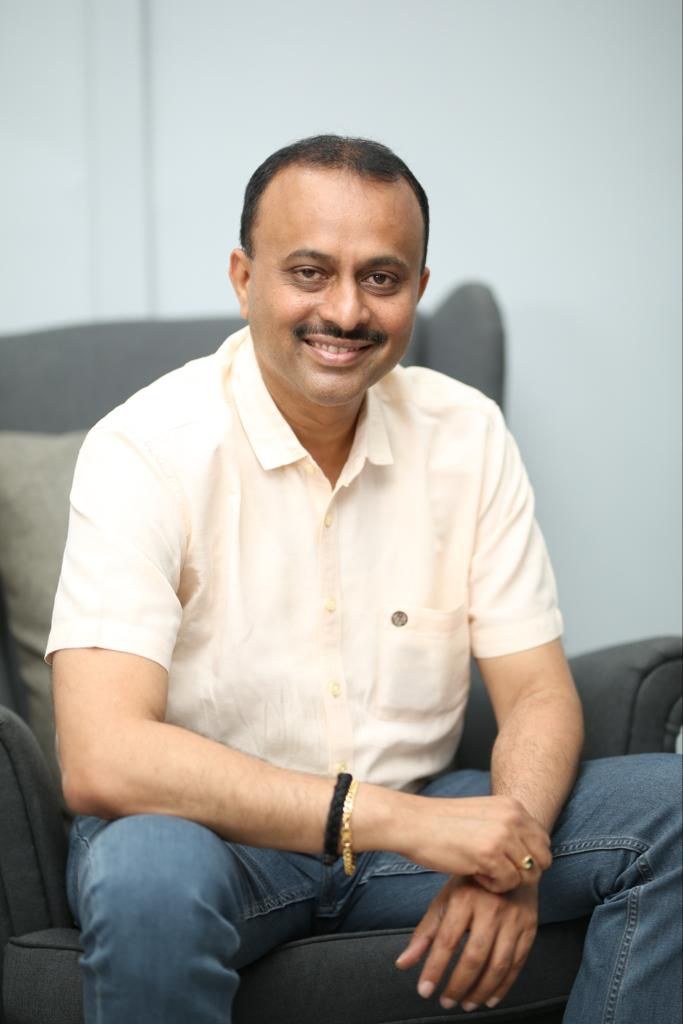Rama Banam, directed by Sriwass, produced by People Media Factory, is set to hit theaters on May 05, 2023. The movie boasts a star-studded cast including Gopichand, Jagapathi Babu, and Dimple Hayathi in lead roles, with supporting actors such as Khushbu, Sachin Khedekar, Nasser, Ali, Raja Ravindra, Vennela Kishore, Saptagiri, Kashi Vishwanath, Satya, Getup Srinu, Sameer, and Tarun Arora. The film promises to offer a unique viewing experience with all the essential commercial elements, and the music composed by Mickey J Meyer is expected to be a highlight.
People Media Factory, known for producing some of the biggest releases, has ensured that the film has a top-notch crew and technicians, including Bhupathi Raja as the story writer, Vetri Palani Swamy as the cinematographer, Madhusudan Padamati as the dialogue writer, and Prawin Pudi as the editor. The film’s first glimpse and poster have already garnered an excellent response from both audiences and critics.
Here are the excerpts from T G Viswa Prasad’s interaction with media
Viswa Prasad and People Media Factory is a brand. So, the expectations must be high for Rama Banam.
We at People Media Factory have always strived to make good movies, as seen in our previous productions such as Dhamaka and now Rama Banam. When Sriwass narrated the script, we were immediately drawn to its quality and family-oriented theme, akin to relishing a high-quality meal. Following the success of Lakshyam and Loukyam, this will be a hat-trick for the combination. We made sure to support Rama Banam in all production values, including roping in talented actors like Jagapathi Babu and Khushboo, among others.
On People Media Factory making so many films
We adopted a factory model concept to overcome the barriers faced by new producers. Right from the beginning, we have been working on multiple projects simultaneously. This helps us mitigate risks. There are around 30-40 films in the pipeline.
On transition from IT to film production
While our business primarily deals with technology services, we also have a deep passion for movies. We believe that movies are not just a source of entertainment, but they have the power to inspire, inform, and provoke thought. That’s why we have made a conscious effort to balance our passion for movies with our commitment to running a successful business.
On producing films in other languages
In our journey as a production company, we have explored different languages and genres. We did a few films in Kannada, we have also ventured into Tamil cinema and produced a few films there. Our portfolio includes a diverse range of films – we have made movies with a US backdrop and even produced a crossover film. By constantly experimenting and pushing boundaries, we strive to bring unique and engaging stories to audiences across languages and cultures.
On the title Rama Banam
We were exploring many titles for a family entertainer that’s heavy on brother sentiment. When Nandamuri Balakrishna suggested Rama Banam, we felt it to be apt for the film, and finalized it.
On Gopichand doing a family entertainer
To put it simply, Rama Banam may come across as a family entertainer, but in reality, it is packed with thrilling action sequences that are sure to delight Gopichand’s fans. While family movies may seem similar at first glance, the essence and spirit of each film are distinct and unique.
How is your involvement in production? What are your observations?
At our company, we’re not just making movies – we’re building an entire ecosystem to support the film industry. We focus on creating the infrastructure and systems needed to facilitate the process of filmmaking. While we don’t directly involve ourselves in the creative side of things, we believe in giving complete freedom to the director and crew to bring their vision to life. By supporting them with the necessary resources and tools, we hope to enable them to make the best possible movies.
Who plays a crucial role in selecting films, you, or Vivek?
One cannot rely on a perfect rule or formula to select movies, as there are various factors to consider such as the combination of cast and crew, the concept, and many more. The success of a particular genre at present doesn’t necessarily guarantee its success in the future. It requires a constant evaluation of audience tastes, preferences, and the ability to adapt and innovate with changing times. A producer must have a keen eye for recognizing potential in a script and be willing to take risks to bring unique and fresh stories to the audience.
How did you feel after seeing the output of Rama Banam?
Rama Banam was in production for a year, and we are extremely satisfied with the content. The final schedule was completed in May last year, and despite facing some challenges, we were able to finalize everything. Originally, we were planning to release the film in February, but we decided to go with a summer release in May. We believe that the timing is just right for this family entertainer packed with action.
On the factory model – success and failures
Our company is leveraging a corporate process to develop a robust infrastructure for the film industry. As a film enthusiast from a young age, I entered the filmmaking business because of my passion for the craft. However, to succeed in this business, we need to balance our creativity with commercial considerations. We are dedicated to putting our hearts into every project we undertake, but we understand that some may succeed while others may not. To mitigate these risks, we rely on a process-driven approach to planning, which involves gathering data, analyzing it, and then mounting the project. Our aim is to build a sustainable film ecosystem that supports both innovative and commercial films.
On Venturing Into OTT
Numbers wise non-theatrical revenue is pinned around 50% for the films. So, OTT has a significant role in film business. We have been doing content for OTT for quite some time.
On children interested in film production
My daughter is currently handling the line production for Sharwanand’s upcoming film, while my son is interested in the technical side of our business. It’s important to have a balance of passion and skill in the film industry, and I’m proud that my daughter is pursuing her interests in this field.
On People Media Factory origin and US roots
We ventured into producing the US episodes of Padutha Theeyagaa. In 2015/16 when want to take full-fledged film production, we had to overcome several entry barriers. Despite the challenges, we persevered and spent time assessing the market and determining the best content to invest in. In the USA, there is a regulatory body called SAG, which we had to navigate. To better understand the complexities of working in America, we produced a film in 2018, which served as a precursor for all our future projects in the US.
Where do you see yourself in the next 5 years?
In the film industry, there are two main components: the creative side and the technical side. The technical side can be more easily systematized and run like a corporation. However, the creative aspect requires talent and cannot be entirely controlled. Our company’s goal is to become the fastest production company to reach the milestone of 100 films. We strive to achieve this by streamlining our technical processes and leveraging our experience in the industry to identify and support talented individuals on the creative side.
On spending more than Gopichand’s market?
I feel there are no market limitations for an actor. If the content is strong enough, we can expand the market beyond what is conventionally thought possible.
How Do You Assess Failures?
In business, it’s crucial to conduct a post-mortem analysis to identify the areas of improvement and to keep learning from past mistakes. Similarly, in the film industry, we also analyze the success and failure of our movies to understand what worked and what didn’t. We keep our learnings intact and implement them in our future projects. This approach helps us to continually improve and provide better content to our audience.




















